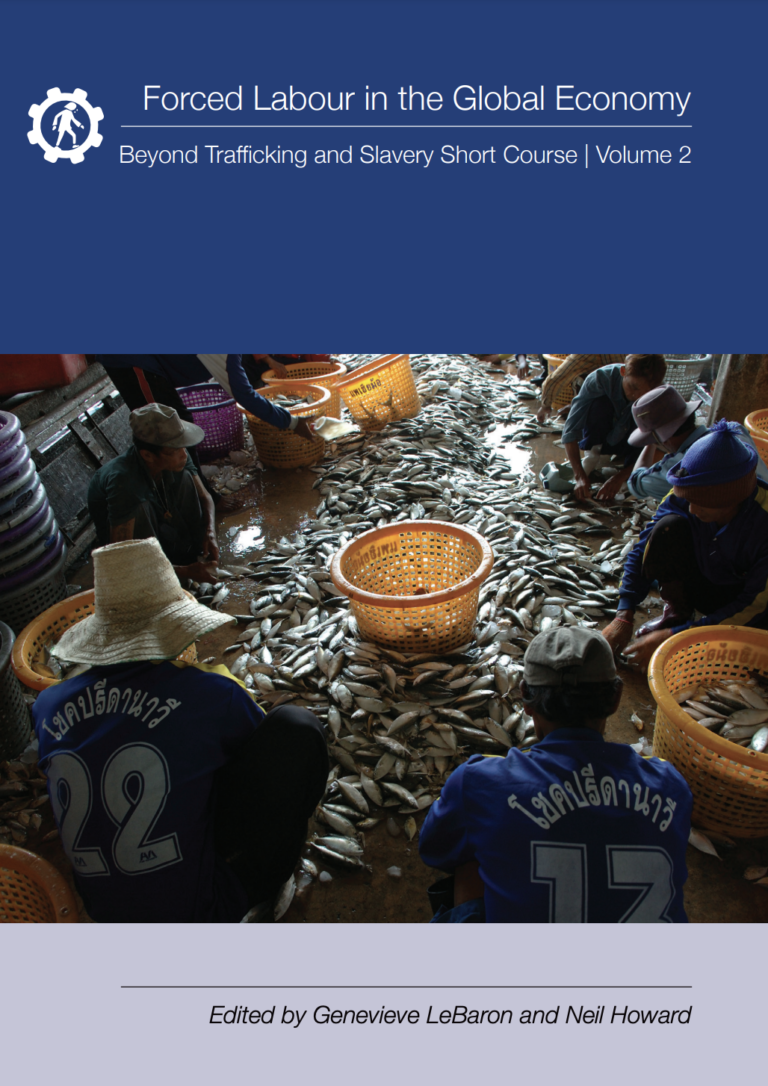Edited by Genevieve LeBaron and Neil Howard.
This is the second volume of the series Beyond Trafficking and Slavery Short Course.
There is a growing and sober awareness among international policymakers and within global civil society that human trafficking, slavery and forced labour are not anomalies perpetuated by a few ‘bad apple’ employers. Rather, such severe labour exploitation is an endemic feature of the contemporary global economy. This edited collection brings together some of the sharpest minds from the worlds of academia and activism to investigate and shed light on the root causes of this exploitation. Its essays analyse how business demand for forced labour manifests in certain industries, as well as how political and economic factors combine to generate a supply of workers vulnerable to abuse. Written in intelligent yet accessible prose, it represents a key resource for policy, activism and research.

